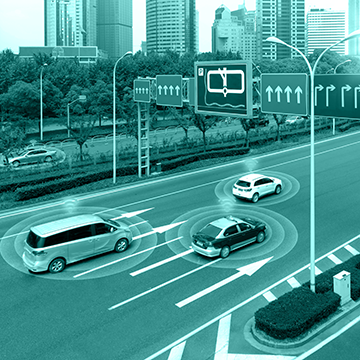Artificial Intelligence
Artificial Intelligence is set to impact every corner of the global economy. Are we ready for to take advantage of this massive opportunity and are we aware of any negative effects that could arise too?
Our expertise
At Red Dawn Consulting we have deep experience in Artificial Intelligence consulting with a focus on strategy. Before the sudden global surge in generative AI, we supported the development of data-based customer retention and acquisition (see our whitepaper on Augmented Decision Making). Data enables AI, without it there would be nothing to train algorithms on. The speed at which AI is developing combined with our global experience on digital economy regulation is the perfect pairing. As a result, we are the perfect partner to understand where regulations will be set, how to safely deploy artificial intelligence in the market, and the niche use cases that are being found.
Come and talk to us for support in:
- AI strategy
- Market Intelligence
- Artificial Intelligence Strategy Consulting
- Merger and Acquisitions
- Operations implementation
Artificial intelligence is leading development
Artificial Intelligence (AI) is developing at an exponential pace. As a result, businesses that ignore this tsunami of development and don’t incorporate AI strategy into their plans won’t succeed. Used correctly, we believe it will make you and your business more intelligent. However, when used inappropriately, the effect can be catastrophic, this is where Artificial Intelligence consulting comes in. In the TMT industries particularly, it is essential to get in front of AI, observe the changes and understand how to use if effectively.
Using AI, machines can now learn from their experiences, adapt to various inputs, and perform tasks similar to humans at lightning speeds. Deep learning and natural language processing are heavily utilised in most AI examples today – from chess-playing computers to self-driving cars.
Narrow AI
Narrow AI refers to an algorithm designed to perform a single task only. For example, virtual assistants perform a repeatable task, but the knowledge learned from performing this task will not automatically transfer to other tasks.
It is typical for an Artificial Intelligence system to exhibit planning, learning, reasoning, problem-solving, knowledge representation, motion perception and manipulation, and, to a lesser extent, social intelligence, and creativity.
Generative AI
Generative AI is currently taking the market by storm. ChatGPT, particularly, is demonstrating a new dimension of value add and is already resulting in companies adapting their long-term strategy to make redundancies in favour of AI solutions. This will initially be most felt in customer service scenarios with more customer complaints dealt with by AI and fewer escalated to human intervention. However, these is only the first steps. As generative AI evolves, we will see it impact every industry from professional services to the creative industries. It is up to Artificial Intelligence consulting professionals to forecast what this will look like and help the market prepare.
The origins of Artificial Intelligence
Early AI research in the 1950s explored topics like problem-solving and symbolic methods. In the 1960s, the US Department of Defence took an interest in this work and began training computers to mimic basic human reasoning. For example, the Defence Advanced Research Projects Agency (DARPA) completed street mapping projects in the 1970s. DARPA also produced intelligent personal assistants in 2003, long before Siri, Alexa, or Cortana were household names. This work paved the way for automation and formal reasoning we see in computers today.
While Hollywood movies and science fiction novels depict AI as human-like robots that take over the world, the current evolution of AI technologies isn’t that. Instead, AI is evolving to provide specific benefits for every industry it touches with the help of innovators and Artificial Intelligence consulting services.
AI is being used in every industry
Artificial intelligence isn’t what we see in sci-fi films, so there won’t be robot intelligence marching down the street any time soon. Yet, with the release of ChatGPT, it is now common to hear concerns about AI. Industry and world leaders have called for a complete halt of AI development for a period while countries set regulations. While these concerns are valid in considering how it affects employment and culture, we are far from AI taking over the world.
Examples of Artificial Intelligence
- Manufacturing robots
- Generative AI
- Self-driving cars
- Smart assistants
- Healthcare management
- Automated financial investing
- Virtual travel booking agent
- Social media monitoring
- Marketing chatbots
AI has cross sectoral impacts
Healthcare
As AI can benefit medical imaging, drug discovery, and medication management, digital technology companies like Google, Microsoft, IBM, and Apple are entering the healthcare sector. Over time, these use cases will grow and develop, so, the Artificial Intelligence consulting community will be responsible for commercialisation.
Industry leaders
IBM Watson is developing treatment plans based on structured and unstructured data (e.g. clinical notes). However, this is making it is increasingly dependent on healthcare data. In order to future proof IBM, the company recently partnered with Medtronic for diabetes and insulin data. Also, it has acquired Explorys, Phytel, Merge Healthcare, and Truven Health. As a result, IBM has unparalleled health-related data and includes 300 million clinical, claims, and operational records.
AI diagnostics and prevention
The final goal of AI diagnostics is to eliminate the need for doctors, according to William J. Mayo, co-founder of the Mayo Clinic. While this is the end-goal, AI currently works to empower physicians rather than replace their diagnostic capabilities.
There is a lot of work taking place in the medical AI ecosystem to predict and prevent wellness, ageing, rehabilitation, and technological augmentation of doctors. This is evident from the 218 healthcare AI start-ups that are developing predictive medicine and wellness applications. Unsurprisingly, the number of IoT applications that support healthcare is growing at the highest of any industry (30% CAGR) according to Cisco.
Automobile
Driverless cars rely on high processing power, cloud computing, GPS, and Artificial Intelligence. Despite fully autonomous vehicles being off the market, BMW says its futuristic ‘i-Next car’ will hit showrooms within four years. Additionally, the company revealed a self-driving concept vehicle with an AI companion named Yui. Yui will learn your driving habits, travel patterns, and emotional experiences. According to TechCrunch Darrell Etherington, this AI companion will act as a co-pilot, travel guide, and spa attendant (the driver’s seat massages).
Investment is going strong
Automobile manufacturers like Tesla, Google, Mercedes-Benz, and Ford are investing billions in developing semi- and fully autonomous vehicles. In view of this, the automotive industry will generate $14.0 billion by 2025 from AI hardware, software, and services, according to Tractica.
Manufacturing
AI and automation will have a significant impact on manufacturing. It is playing a vital role in improving:
- Enterprise software
- Predictive maintenance
- Machine optimisation
- Interpreting data between departments
- Improving material management.
There are 650 human workers at Changing Precision Technology, a mobile phone manufacturer. In order to augment the workforce, robots are being used in manufacturing automation. As a result, AI automation has led to a 250% increase in productivity and 80% fewer defects.
In 2013, Google acquired eight robotics companies to be at the heart of their moonshot program. Over the next decade, Google is likely to develop much more advanced robots with greater compatibility and robustness.
Finance
Central banks, traders and high-street banks are all benefitting from AI in FinTech. Algorithmic trading has proven the success of AI automation with 75% of all financial market volume from AI-driven trading. Beyond this, central banks can complete functions with more efficiency. In short, functions that used to take thousands of hours a year now only take seconds thanks to machine learning. For example, top banks such as JP Morgan are reducing the time they spend reviewing documents and decreasing their loan servicing mistakes.
Finally, the insurance industry will also benefit from machine learning with chatbots, predictive analysis based on customer life stages and events. Further, mobile apps will be able to track spending patterns and support savings, reducing claim processing times, and much more. Companies in every sector, supported by Artificial Intelligence consulting professionals, are investing heavily in automation because AI applications are endless.
When AI goes wrong
AI as a weapon of war
While AI can change society for the better, there is the possibility of it being as destructive as it is constructive. Firstly, consider the arms industry, autonomous weapons could be as dangerous as nuclear weapons. Would a tyrant or terrorist group use these weapons against innocent people? Further, could actors hack and manipulate them? As a result, 116 founders of AI and robotics companies from 26 countries have signed a petition calling for a ban on lethal autonomous weapons. They warn that delays will lead to an arms race with weapons developed by the USA, China, Russia, and Israel. Companies that are working to develop this weaponry include Raytheon, Dassault, MiG, and BAE Systems.
Socio-economic impacts
Finally, by 2050, automation will replace approximately 57% of jobs, according to a study by Oxford University and the Oxford Martin School. This raises the question- what next? While automation transforms the value chain from production to management to governance systems, we must recognise how this changes where humans fit into the system. Artificial Intelligence consulting must minimise the impact of these changes while enabling the benefits of AI.
Get In touch
If you have a requirement you would like to tell us about request a call back below



























